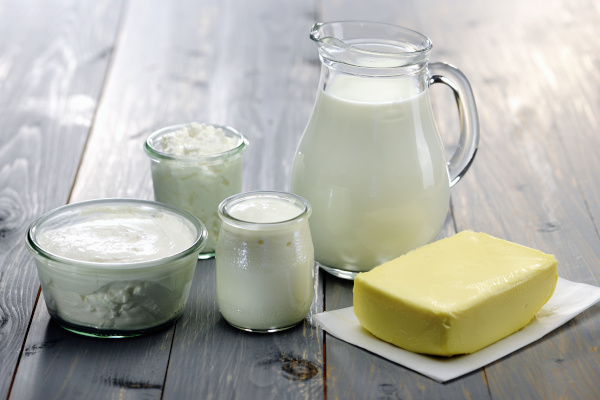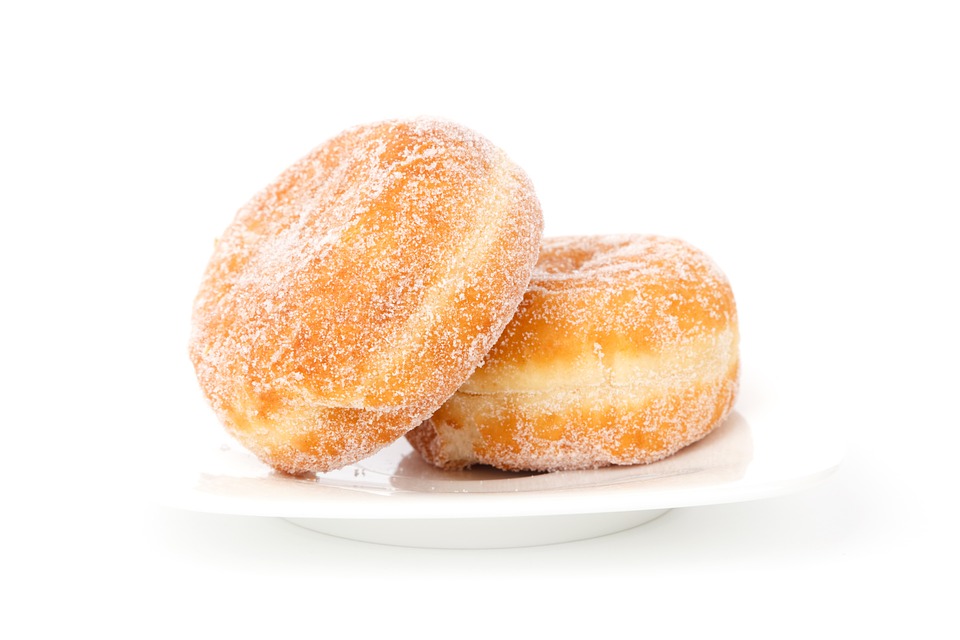Essential Fatty Acids and Saturated Fats : Important Update. In a recent revelation, investigative journalist Nina Teicholtz uncovered some shocking insights into fats and the weight loss industry. Nina’s revelations in “The Big Fat Surprise” reveals the shocking truth behind the health industry – the cover up’s over the truth about fats from Doctors and the health profession in general. Firstly, lets quickly talk about what essential fatty acids are and how essential fatty acids are needed by the body.
How Can Essential Fats be Good?
Athletes and nutritionists have long known that omega-3 and omega-6 fatty acids are beneficial. However, most of them have been massively avoided by many of us due to the fact that they are basically fat – the death knoll of the diet. This is where the so called health professionals have lied to us…
What Are Essential Fatty Acids?
Essential fatty acids (E.F.As) are a special class of fats generally known as “good fat.” They are also referred to as essential nutrients and sometimes called vitamin F. These essential nutrients play crucial roles in life. Essential fatty acids make hormones that regulate the immune system and central nervous system and include : linoleic acid (LA) (an omega-6 fatty acid), and alpha-linolenic acid (ALA). Alpha Linoleic Acid is an omega-3 fatty acid.
Essential fatty acids need to be supplied by the food we eat because the body is unable to create them itself.
Essential Fatty Acids Function
They are also vital for optimal health. Studies suggest omega-3 fatty acids may also help prevent bowel disease, asthma, and some mental health conditions.

Moreover, essential fatty acids functions include (and not limited to) :-
- increasing the absorption of vitamins and minerals
- nourish the skin, hair, and nails;
- promoting good nerve function;
- help in the production of hormones;
- ensure healthy growth and development;
- and prevent and treat diseases among others.
Fats (essential fatty acids) are divided into two groups- saturated and unsaturated (depending on their chemical composition). Unsaturated fatty acids are divided into three types; omega-3, omega-6, and omega-9.
The omega-6 and omega-3s are known to be essential while omega-9s are non-essential; this is because the body can produce omega-9s from other fatty acids. Unsaturated fatty acids are further classified as monounsaturated or polyunsaturated. Essential fatty acids (EFAs) are …. polyunsaturated.
These include:
- The omega-6 fatty acid, linoleic acid (LA) and its derivatives, gamma-linolenic acid (GLA) and arachidonic acid (AA)
- The omega-3 fatty acid alpha-linolenic acid (ALA) and its derivatives, eicosapentaenoic acid (EPA) and docosahexaenoic acid (DHA).
Studies have shown that only linoleic acid (LA) and alpha-linoleic acid (ALA) are essential. However, the fatty acids which are obtained from them are also considered to be essential.
“Essential Fatty Acids are needed for the proper structure and functioning of all the cells in the body“.
Athletes and nutritionists have long known that omega-3 and omega-6 fatty acids are beneficial. However, most of them have been massively avoided by many of us due to the fact that they are basically fat – the death knoll of the diet. This is where the so called health professionals have lied to us…
Among other known fats, Omega 3 and Omega 6 fatty acids are scientifically known as Essential Fatty Acids (EFAs). There is no debating this reason, and the fact remains that they are essential (nutritionists and other medical professionals are in universal agreement).
They are considered essential because they are urgently needed by all living cells in the body and are not produced by the body. It is our responsibility to provide them with the food that we consume on a daily basis!
Making the balance between omega 3 and omega 6 in our diet is absolutely necessary. Not only if weight loss is on the agenda, but also to help our body function properly and prevent a range of diseases such as hypertension, low immune system, dry skin, hair and nails, poor digestion and low energy.
We should not avoid all fats like the plague if we want to be lean and healthy. But it’s quite obvious that many of us wonder why Essential Fatty Acids (E.F.A’s) are essential in our weight loss plan, not to mention our overall health and fitness.

Among many other things, essential fatty acids help to:
i. Make us Skinny. Essential fatty acids (EFA’s) contribute to, and continue with this process by behaving like hormones that increase the ability of the body to burn fat. They also reduce the fat it produces for its protection. These are fats that hang around body organs (viceral fat) and sits around our waists or abdomens (subcutaneous fat).
ii. Remove Your Body’s need for Appetite Supplements.
iii.Reduce Blood Sugar Fluctuations. EFA’s control the rate at which fat is produced, craving for food and loss of energy attributed to carbohydrates and sugars.
iv. Reduce Inflammation and Fluid Retention. EFA’s assist in reducing inflammation and fluid retention in body tissues. They are also involved in initiating the removal of water unnecessarily retained in other parts of the body. Due to this action they can have a vivid impact on our ability to lose weight!
v. Increase Energy Levels. EFA’sincrease the body’s energy levels during the day allowing you to live a fuller life :- going to the gym, playing with the children, enjoying days out, be more productive at work or taking an extra lap of the pool!
vi. Escalate Brain Stimulation. Research shows that, as with Magnesium, EFA’s help to improve cognitive function, create happier moods and alleviate depression. Elevated, positive moods reduce our cravings for crisps and other processed sugar based foods. Additionally, the brain contains (and needs) a high fat content for it to work.
Any of these benefits to consuming more essential fatty acids also form part of your 12 reasons to lose weight
How Essential Fatty Acids (EFA’s) Affect Weight Loss and Energy in the Body
It is important to note that not all fats are dangerous to the body! Although there should be a reduction in the rate you consume certain saturated and Trans fats. Unsaturated fats (including the polyunsaturated omega-3 and omega-6 fats) and monounsaturated fats (omega-9 fats) are healthy when taken in amounts that work with the body’s fat requirements to produce a healthy neurological and physiological balance.
Incorporating at least a small amount of these fats in a low-calorie diet can assist in making your meals more satisfying and enhance your weight loss goal.
Essential Fatty Acids and Satiety
Consuming a high quantity of omega-3 fats in your diet can increase your feelings of fullness, thereby reducing your ‘hunger pangs and cravings’ enhancing your weight loss and ability keep it off (based on a study published in Appetite in November 2008). According to a review article published in Nutrients in 2010, it was revealed that Omega-3 fats could contribute to weight loss by reducing appetite and increasing fat burning – especially when combined with low-calorie diet and exercise. Now, that was back in 2010 and nutritional research has provided some interesting results since then.
Reducing Water Retention with the Right Fatty Acids
Water retention can be a big problem for all of us -especially if we are trying to lose weight.
In the event that you are trying to lose weight, the best thing could be reducing your consumption of omega-6. Omega-6 can make you retain water. By preventing the unnecessary water retention, your body’s physiological processes and the cellular transition process will become more efficient. This will then prevent cellular growth (and weight gain) through water retention. This very process has led to the rising popularity of the Keto Diet (the first week in the keto diet activates the physiological processes that remove excess water retention).
All you need to do is to target 3-1 omega-6 ratio to omega-3 fats, as recommended by Unity Health System. These fats should represent between 5 and 10% of the total calorie intake for that day.
Omega-9 fats are monounsaturated fatty acids. According to a study published in The American Journal of Clinical Nutrition in February 2004, a diet low in monounsaturated fat can help you lose the same weight as a low-fat diet while at the same time reducing the risk of heart disease.
Dairy Fats! The BIG Question…
..Is Low-Fat or Full Fat the Better Choice for Dairy Products?

Fat has received a number of criticisms since the eighties, and low-fat or fat-free products became a dietary staple. However, much research has been conducted over the years. Presently, some nutritionists agree that dietary fats should have their place at the table. Milk from organic grass fed cows is known to have higher quantities of healthy fats like conjugated linoleic acid (CLA) and omega-3 fatty acids compared with grain fed cows.
Healthy fats, including those that are present in olive oil, nuts, seeds, and avocados, can assist the body in absorbing essential nutrients and contribute to overall health. But the question is; does the same apply when it comes to dairy products?
A host of other questions were asked;
“Is it the time to consider low-fat and skim milk for whole milk and cheese?” “Which is the best, whole milk or low-fat milk?”
In the light of recent evidence and research the answer is YES.. And on a personal note – I never liked the idea of skimmed or semi skimmed (semi-skilled as I call it) milk and always stuck to the fuller bodied and flavoured full fat milk.
However, according to to Dr. Frank Hu, The Fredrick J. Stare Professor of Nutrition and Epidemiology at the Harvard T.H. Chan School of Public Health. “The evidence doesn’t support that.”
What are The Types of Fat That You Should Consider?
One of the main reasons why they say you cannot eat fatty milk products with “abandon” is that, unlike the so-called healthy monounsaturated and polyunsaturated fatty acids found in olive oil, oily fish and nuts, dairy products mostly contain saturated fats which can contribute to the risk of heart disease (according to some health professionals). Saturated fats come in a variety of formats/ compositions.
Some saturated fats are good for you – HDL Cholesterol can actually reduce heart complaints and helps to cleanse, rebuild and maintain the blood vessels. Healthy Saturated fats are also needed for brain function.
“But that does not indicate that you cannot enjoy a glass of whole milk, cream or rich cheese from time to time”, says Dr. Hu. “What is important is moderation”.
As a rule, do not consume more than 20 grams of saturated fat per day for an average 2,000 calorie diet, says Dr. Hu.
He stressed that “That’s actually a lot when you consider that one cup of whole milk has 4.5 grams of saturated fat.”
Even then, this does not permit you to plug away three or four glasses a day or return to the diet of the 1950s and 60s which are full of butter and red meat.
Some believe that it is not a good idea to eat a lot of full-fat dairies says Dr, Hu. “All you need to do is work towards balance by choosing a combination of low-fat and full-fat options. This could be one glass of 1% or skimmed milk combined with full-fat yogurt.”
Conclusion…..
As Dr. Hu states : “It is often advisable to focus on healthy eating overall, rather than thinking one nutrient such as saturated fats”.
“The problem is that often when people have cheese, a burger stands under it,” he says. “Or the cheese they eat is at the top of a pepperoni pizza. Also, there are times when people focus on fat reduction and begin to consume more refined carbohydrates and sugar, which can create their health risks”, says Dr. Hu. More importantly it is the bread the burger sits in that causes most of the problems!

Refined carbohydrates and sugars are typically found in wheat based products : cakes, pasties, pastries, bread etc. Processed sugars are found in virtually every single item of pre-made packaged food. Food manufacturers use sugar in their products to enhance the flavour knowing it is also addictive.
Low fat products are typically ‘bland’ in flavour and so manufacturers will add sugar (in some form) to improve the flavour. Have you ever noticed that full fat foods taste better?
And here lies the real problem fuelling the debate behind full-fat or low-fat produce. More importantly – the food it is eaten with or as part of a balanced diet!!
We NEED a balanced diet rich in vitamins, minerals, essential fatty acids, proteins and some “clean carbohydrates” sourced from : meat, poultry, fish, low sugar fruits, low starch vegetables, quality oils, seeds and nuts. And avoid the poor nutrition from wheat based products (bread, cakes, pastries, pasties, wheat based cereals) while reducing our sugar intake (sugar is another form of carbohydrate).
For further information on this ‘debate’ read this article about saturated fats and dietary fats: “Dietary Fats: The Shocking Truth”

I am in fact thankful to the owner of this website who has shared this enormous piece of
writing about essential fatty acids.
Heya i’m for the first time here. I came across this board and I find It really useful & it helped me out much. I hope to give something back and aid others like you aided me.
look also at my pages and give a rating
https://legalidad.net/index.php?action=profile;u=849756 captcha service
https://www.morphonic-records.com/community/profile/georgettaclisby/ autoposting
@d@=
If you are going for finest contents like I do, only pay a quick visit this web page daily since it offers feature contents, thanks
look also at my pages and give a rating
XEvil is a straightforward, fast and effortless system for entirely automatic recognition and bypass of your vast majority of captchas (CAPTCHAs), with no need to have to attach any third-bash services.
This system almost entirely replaces services including AntiGate (Anti-Captcha), RuCaptcha, DeCaptcher and Many others. Simultaneously, it appreciably exceeds them in recognition speed (ten situations or maybe more) and is completely free.
https://lilianrydge4663.wordpress.com/2024/01/10/the-ugly-side-of-speedyindex-google/ fast indexing options
https://luxuriousrentz.com/the-nuiances-of-speedyindex-google/ fast indexing for wordpress
@d@=